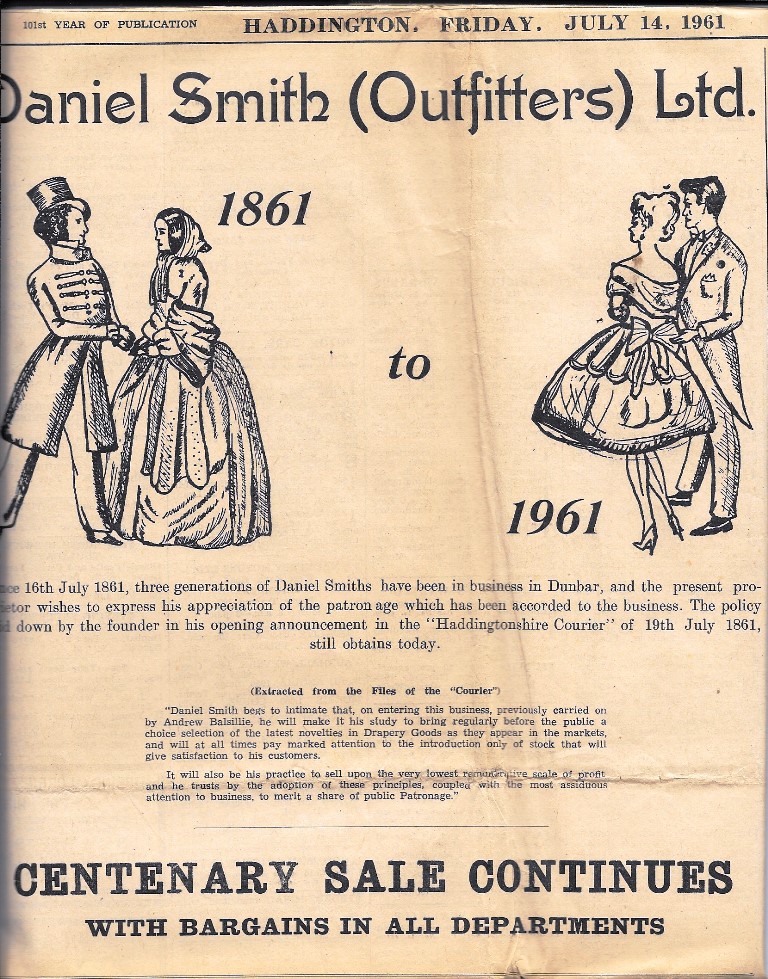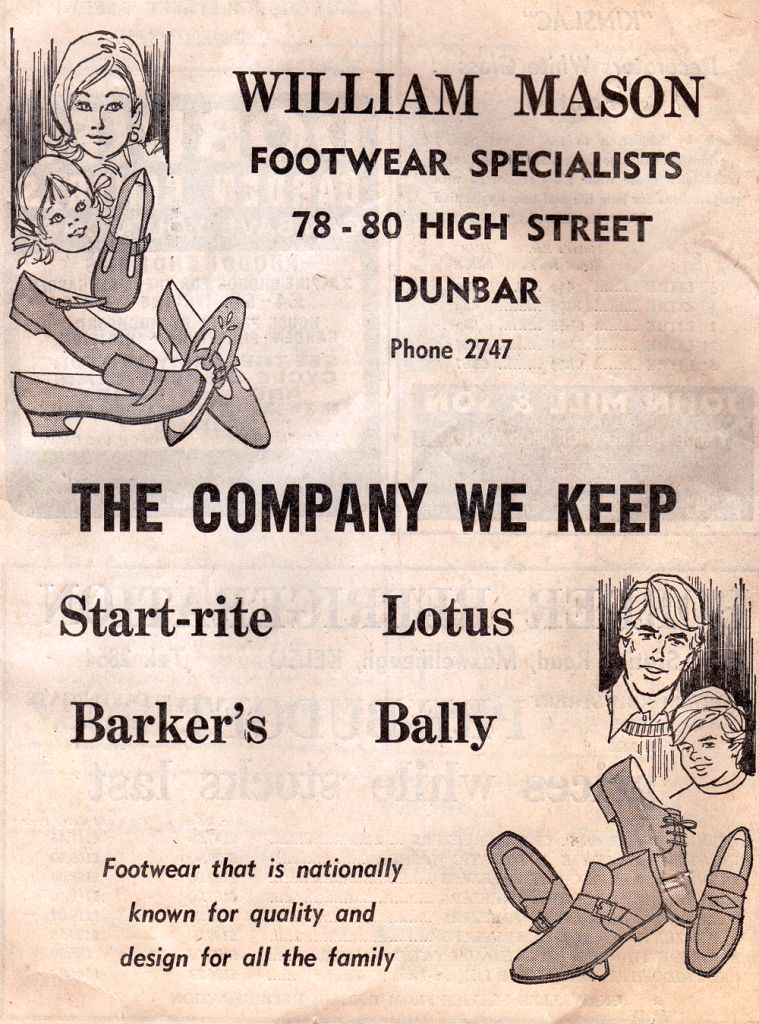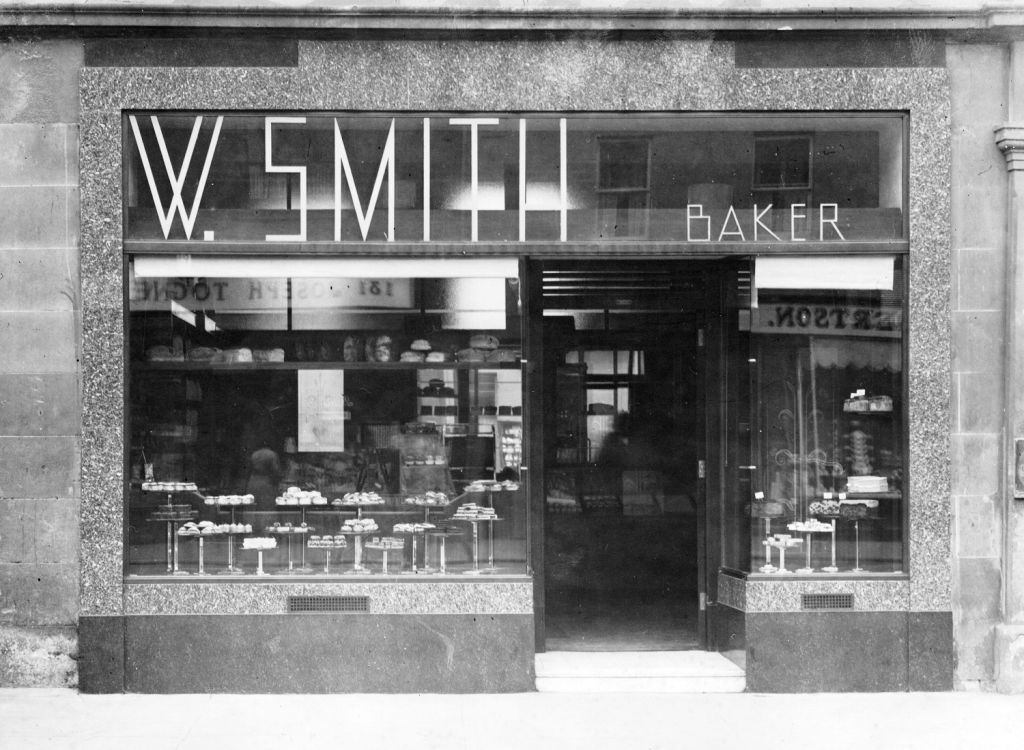June 2023
This month, we are going to look at some of the boards displayed in the new DDHS exhibition in the Town House, Dunbar. The exhibition was curated by DDHS Secretary Pauline Smeed and is well worth a visit. Text and photos by Pauline Smeed and links provided by Jim Herring.
The first extract from the exhibition (photo below) shows an advert for Daniel Smith’s, a gents and ladies outfitters. Provost Daniel Smith (1837-1911) was just one of several local shopkeepers who served their community on Dunbar Town Council. There he held office for 35 years as Magistrate and Provost, as well as many other positions in the town and the wider community. Daniel Smith’s business began in 1861 when his family took over the business from a Mr Balsillie. In the early years, there were two shops – a tailor’s and a drapery. Millinery was also popular and there was a staff of alteration hands ready to assist. Later, a third shop was acquired for linen and household items. You can see a Daniel Smith bill to Robert Aitken in 1947 here (scroll down).

The second feature from the exhibition (photo below) relates to William Mason’s shoe shop. The shoemaker’s and cobbler’s business that began in Auchencrow and Peebles in the mid 19th century, came to Dunbar in the early 1870s when William Mason opened his repair workshop and shoe fitting business. By the time the business closed in 2014, the family ran branches of William Mason in Dunbar, Haddington and North Berwick. Many East Lothian families recall, and miss, the personal fitting service, the choice of quality boots and shoes. The shoes in the advert include Start-Rite and their website states that “we’re proud to be Britain’s oldest shoemaker, caring for children’s feet – and bodies – since 1792″. The oldest shoemaker claim is disputed by the advert’s Lotus, as this history of the company suggests that Lotus Shoes is “believed to be the oldest British footwear brand”, tracing its origins to ” 1759 when William Bostock was working as a shoemaker in Derbyshire. His son, Thomas Bostock, would go on to found the first factory for Lotus Shoes”. However, the site also notes that Bostock’s factory in Stafford in 1814, made shoes “that would later be named Lotus”. Barker’s shoes date back to 1880 – see here. Bally shoes have their origins in Switzerland in 1851 and modestly claim that they are “Proud to be leather architects, our DNA as skilled shoemakers marries a heritage of craftsmanship with a decidedly contemporary aesthetic” – see more here.

The third selection from the exhibition is (photo below) William Smith’s baker’s shop, known to generations of people in Dunbar as Smith the Bakers. The shop began in 1853 when William Smith purchased a bakehouse behind the Eagle Close from Robert Bruce, who also had a shop on the other side of the street next to Purves’ Close. In 1890, the bakery moved to behind the site of the present Co-op. In 1936, his grandchildren built the bakery at the back of the Lorne Temperance Hotel, at 130 High Street, where the business had been purchased by William’s son John. William Smith also played a role in Dunbar in the late 19th century as harbourmaster. The John Gray Centre (includes photo) tells us that the “Lorne Temperance Hotel was owned by William Brodie of Battleblent and managed at first by Thomas Wilson. It opened in 1872 and provided genteel accommodation in an alcohol-free environment”. Two other temperance hotels have been featured on the DDHS website – Wilson’s Temperance Hotel and the Albert Temperance Hotel – see here for details and photos of both.

You must be logged in to post a comment.